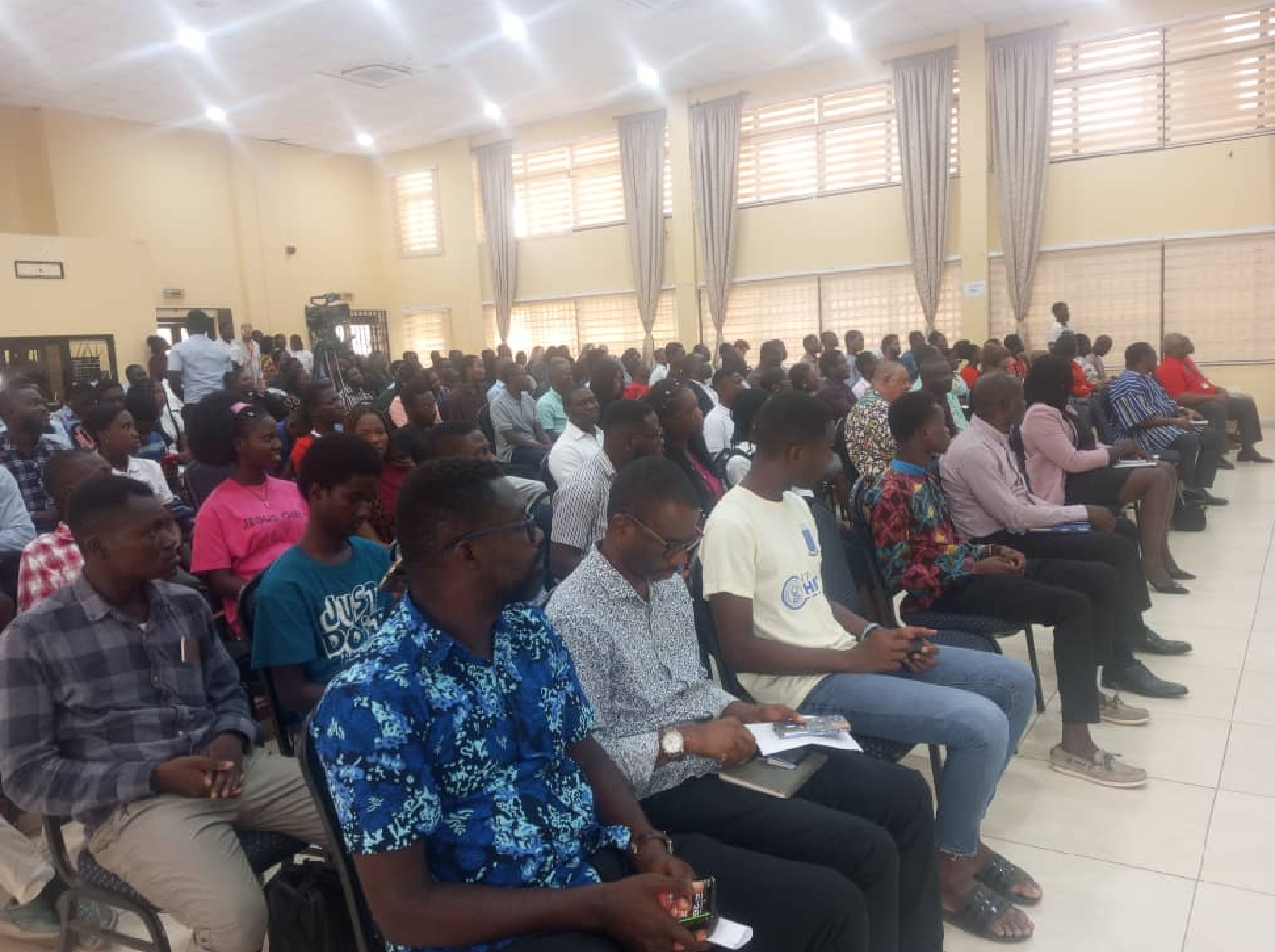The School of Physical and Mathematical Sciences (SPMS) together with the Department of Physics held a public talk under the school level seminars dubbed 'Afternoons with SPMS'. The seminar, which was held on Wednesday, February 27, 2024, was on the topic: “U.S Environmental Diplomacy in Africa” It was delivered by Ms. Jennifer R. Littlejohn who is the Acting Assistant Secretary in the U.S Department of State’s Bureau of Oceans and International Environmental and Scientific Affairs.
In his opening remarks, the Chairman of the program and Dean of SPMS, Prof. Sandow Mark Yidana reiterated the solid partnership between the U.S Embassy and the University of Ghana with regards to issues on environmental sustainability, air quality and air pollution. He welcomed all attendees and rallied for their cooperation.
Ms. Littlejohn in her opening remarks expressed her excitement to engage with the university community especially students. She indicated that students were the future scientists, environmentalists, innovators and problem solvers. With the right training, the physical and human resources Africa possess will put the continent on a pinnacle of the world.
The main goal is for U.S. to partner with Africa in an attempt to conserve the environment. This constitutes the new form of diplomacy. As part of efforts to make this a reality, the U.S. government has made tremendous financial contributions. The speaker commended the University of Ghana for setting up an air quality mechanism to obtain accurate data and also help educate individuals. The U.S. government also intends to build three (3) air quality hubs across Africa and also put in more resources to combat air pollution. According to the speaker, twenty-two (22) countries have been highlighted as high risk countries in terms of air pollution. Out of these countries, 16 are in Africa including Ghana.
Another issue that the U.S government is currently addressing with partners across the continent is IUU fishing, which stands for illegal, unreported, and unregulated fishing. The United States has designated some areas around the African coasts of the Atlantic and Indian Oceans as priority areas in its battle against illegal, unreported, and unregulated fishing (IUU) activity, and this is a major problem in Africa. The well-being of vital fish stocks and the livelihoods of individuals who depend on them are being jeopardized in too many locations due to the excessive captures made by foreign fishing ships and certain unscrupulous local operators. Even though there are strong tools to prevent IUU-caught fish from entering ports and markets through information sharing, coordinated enforcement, and the global Port State Measures Agreement, there is still more work to be done. The blue economy. Which has to do with issues surrounding the economy is projected to generate an amount of USD 3 trillion by 2030.
In addition, they have been collaborating with African nations by working together so that the states along the Atlantic coast can better prepare for the future by tackling shared problems and ensuring that the region's resources are sustainable, resilient, and healthy. “If we take care of the ocean, the ocean will take care of us” she added.
In order to find effective answers, the speaker mentioned that there was a need to ensure that all members of society, including women and Indigenous peoples, are heard. The effects of environmental deterioration and climate change have been most severe for African communities. Therefore, it is critical to eliminate gender gaps in the STEM (science, technology, engineering, and mathematics) professions and provide equal opportunity for women and men. This has been made more challenging due to obstacles in the US and elsewhere. New scientific knowledge is essential if problems of our day is to be mitigated. Women are an essential component of the top talent pool and should not be left out in this endeavour.
Her speech ended by reiterating the need to work together, support each other and use the shared knowledge to replenish lands and water body in the world.
